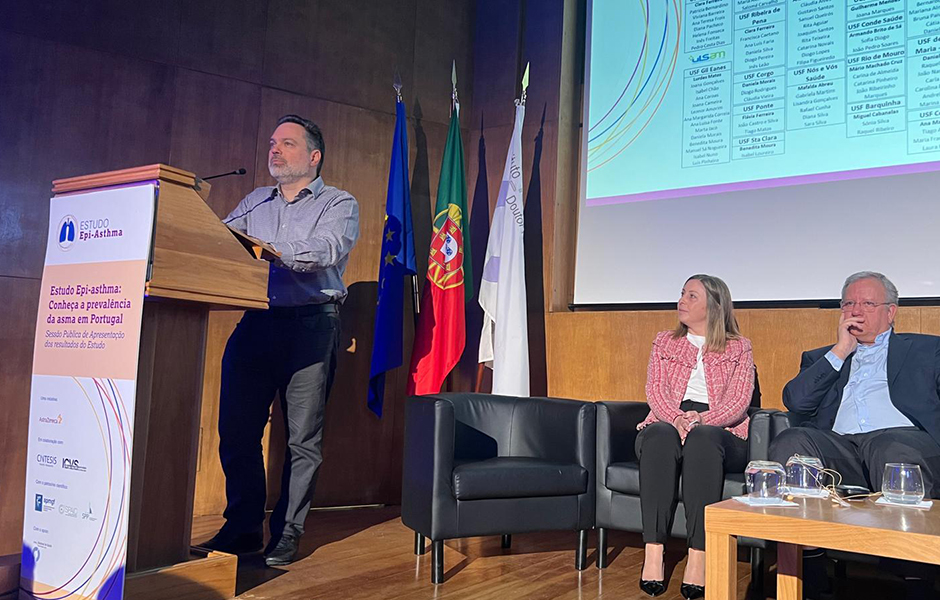Nearly six hundred thousand adults suffer from asthma in Portugal and seven out of ten do not have the disease under control. These are some of the main conclusions of the Epi-Asthma study, implemented by a consortium that includes CINTESIS – Center for Health Technology and Services Research/Faculty of Medicine of the University of Porto (FMUP).
The results of “EPI-ASTHMA – Prevalence and characterization of people with asthma, according to the severity of the disease, in Portugal” were presented at an event held at the Instituto Nacional de Saúde Doutor Ricardo Jorge (INSA) on April 30.
The study indicates that the prevalence of asthma in adults in our country is 7.1%. A percentage close to, but slightly higher than, that found in 2012 in the general population, in adults and children (6.8%).
According to João Fonseca, a researcher at CINTESIS@RISE/FMUP and one of the coordinators of the study, there are several risk factors that may explain this prevalence, “including poor indoor air quality (such as mold, humidity, exposure to tobacco smoke or fireplaces) and outdoor air quality (such as air pollution), and there are some areas of the country with poorer air quality that have an increased risk of asthma”.
Among patients with asthma, 68% do not have the disease under control, which may be due, according to the authors, to “several factors”, the main one being related to respiratory health literacy.
“Asthma is still seen as an episodic disease that only requires treatment when there are symptoms, although we know that in a considerable percentage of situations, it is necessary to maintain continuous medication, at least for most of the year,” explains João Fonseca.
Epi-Asthma also concluded that 23% of the asthma patients identified did not have their diagnosis recorded in their medical records. Of these, 70% had not been treated in the last 12 months, which shows the “need for measures to improve access to diagnosis and monitoring of the disease”.
asthma patients identified did not have their diagnosis recorded in their medical records. Of these, 70% had not been treated in the last 12 months, which shows the “need for measures to improve access to diagnosis and monitoring of the disease”.
Other reasons given for the lack of asthma control are “insufficient adherence and medication failures”, as well as “errors in the technique of using inhalers and the costs associated with medication”. As for the health services, they point to “insufficient follow-up in terms of frequency and periodicity of consultations and less attention from professionals in relation to respiratory disease follow-up programs, mainly due to work overload and multiple tasks”.
Still according to the experts, “it is essential to continue to invest in and improve existing surveillance and control programs, improve access to proximity tests, develop specific clinical record systems for respiratory diseases in health professionals’ computer programs, and promote respiratory health literacy.”
In addition to CINTESIS/FMUP, this observational study, carried out in 38 Primary Health Care units, was developed in collaboration with the Life Sciences and Health Research Institute (ICVS) of the University of Minho and AstraZeneca Portugal, with the support of the Portuguese Association of General and Family Medicine (APMGF), the Portuguese Society of Allergology and Clinical Immunology (SPAIC) and the Portuguese Society of Pneumology (SPP).

